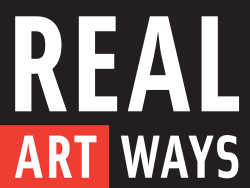Event
Science on Screen: Chocolat
The most tempting of all sweets becomes the key weapon in a battle of sensual pleasure versus disciplined self-denial in this comedy. In 1959, a mysterious woman named Vianne (Juliette Binoche) moves with her young daughter into a small French village, where much of the community’s activities are dominated by the local Catholic church. A few days after settling into town, Vianne opens up a confectionery shop across the street from the house of worship — shortly after the beginning of Lent.
While the townspeople are supposed to be abstaining from worldly pleasures, Vianne tempts them with unusual and delicious chocolate creations, using her expert touch to create just the right candy to break down each customer’s resistance. With every passing day, more and more of Vianne’s neighbors are succumbing to her sinfully delicious treats, but the Comte de Reynaud (Alfred Molina), the town’s mayor, is not the least bit amused; he is eager to see Vianne run out of town before she leads the town into a deeper level of temptation.
Vianne, however, is not to be swayed, and with the help of another new arrival in town, a handsome Irish Gypsy named Roux (Johnny Depp), she plans a “Grand Festival of Chocolate,” to be held on Easter Sunday. Based on the novel by Joanne Harris, Chocolat features a distinguished supporting cast, including Judi Dench, Lena Olin, Carrie-Anne Moss, Peter Stormare, Hugh O’Conor, and Leslie Caron.

Michael Robinson, Assistant Professor of Psychology and Neuroscience and Behavior at Wesleyan University. (Photo by Olivia Drake/Wesleyan University)
Pre-Film Speaker: Mike J.F. Robinson, Ph.D.
Neuroscience and Psychology Professor, Wesleyan University
Topic: The Effects of Sugar on the Brain
How our brains control our behaviors in our dynamic and changing world and how we eat – like junk food – also affect our brain. How do modern day diets (full of soft drinks and junk foods) change our brains besides just making us overweight. Our brains not only make us want to eat more of these foods, but these foods are damaging areas critical for forming memories and behavioral control.
Dr. Robinson’s research focuses on conditions and brain structures that exacerbate reward and the motivational value attributed to a cue, particularly in the context of addiction, craving and relapse. He also focuses on how excessive desire may impact risky decision-making. His approach combines optogenetics with behavioral techniques to uncover the mechanisms underlying excessive attribution of incentive value for drug addiction, gambling and diet-induced obesity. You can find out more information about the lab and the research by visiting their website and viewing their publications.
Science on Screen® is a film series that features “creative pairings of classic, cult, and documentary films with lively introductions by notable figures from the world of science, technology, and medicine.” Real Art Ways was one of the eight original theaters chosen nationally to curate our own series.
Science on Screen is an initiative of the Coolidge Corner Theatre with major support from the Alfred P. Sloan Foundation.

